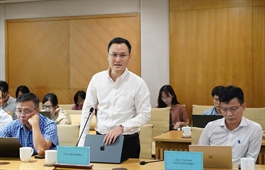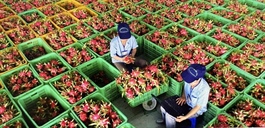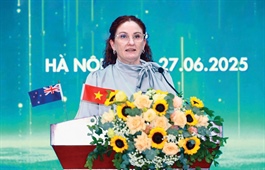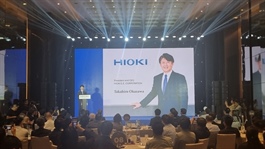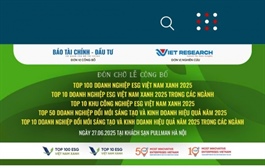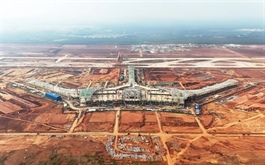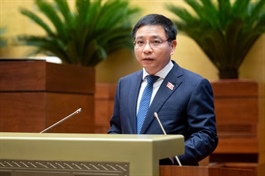Removing hidden barriers to unlock ASEAN trade
Removing hidden barriers to unlock ASEAN trade
Non-tariff barriers in ASEAN, from hidden environmental rules to fragmented standards, are quietly stalling trade, demanding smarter, more unified responses from regional exporters.
At a conference titled “Easing Non-Tariff Barriers to Unlock ASEAN’s Potential” held on June 27, Phuong Nguyen, head of KPMG's Hanoi branch, highlighted that many barriers remain hidden, designed in the form of environmental policies, technical measures, or regulations that have significant impacts on trade.
Phuong cited an example of a trade dispute that occurred between Indonesia and the European Union (EU) regarding palm oil.
The EU had issued a series of directives aimed at promoting renewable energy and reducing greenhouse gas (GHG) emissions in the transport sector. These documents established sustainability criteria and required GHG emissions reductions for biofuels, including palm oil.
This product was considered to pose a high risk of indirect land-use change (ILUC), leading to deforestation. One of the directives limited the share of biofuels derived from food crops, including palm oil, to a maximum of 7 per cent of total final energy consumption in transport and set a goal of phasing out all high ILUC-risk fuels by 2030, unless businesses ccould prove that they are not linked to deforestation or the use of degraded land.
These measures hindered Indonesia’s palm oil exports to the EU, so it filed a complaint with the World Trade Organisation (WTO), arguing that the above regulations were discriminatory and violated trade commitments.
In response, the EU considered this a legitimate and necessary environmental measure to protect the global climate. The WTO, while acknowledging the EU's environmental concerns, also stated that these limitations were not applied consistently and imposed disproportionate burdens on Indonesian palm oil.
“The case of Indonesia’s palm oil is an example of a type of non-tariff barrier (NTB) that is not immediately recognisable as a barrier,” said Phuong.
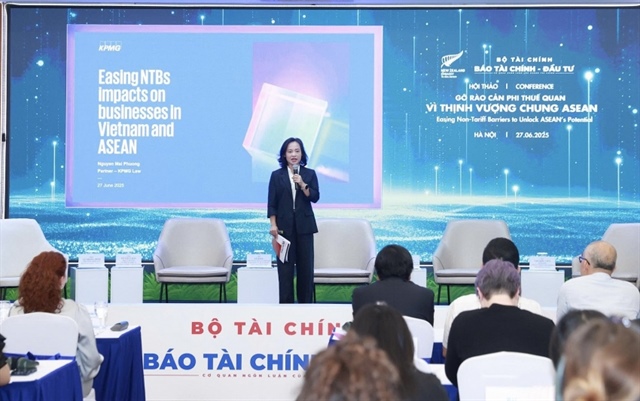
Phuong Nguyen, head of KPMG's Hanoi branch. Photo: Duc Thanh |
The KPMG representative also cited other common forms of NTBs, including data localisation requirements such as Indonesia’s Personal Data Protection (PDP) Law of 2022, which requires public and financial data to be stored domestically, and Vietnam’s Decree 53/2022/ND-CP, which stipulates similar regulations for foreign-invested enterprises.
Additionally, mandatory domestic testing and certification requirements are a common type of barrier.
“For instance, the Philippines requires that medicine, even if it meets international standards, must still undergo local clinical trials. Complicated rules of origin imposed by many countries also cause difficulties for regional exporters and are commonly seen as barriers,” she said.
According to Phuong, the impact of NTBs on businesses and trade flows is not insignificant. Citing the Asia-Pacific Trade and Investment Report 2019, the representative from KPMG noted that about 58 per cent of trade in the Asia-Pacific region is affected by NTBs.
From KPMG’s perspective, ASEAN needs initial collective solutions. Specifically, Phuong suggested promoting the use of the ASEAN Trade Repository to update and share policies, thereby enhancing transparency. At the same time, clear, reasonable, transparent, and non-discriminatory principles should be applied when issuing new NTBs.
“Each country needs to improve internal capacity, simplify licensing procedures, increase mutual recognition of standards, and promote digitalisation. In addition, emphasis should be placed on training, supporting businesses, or organising workshops to help them better understand policies and related legal frameworks, with connected databases for real-time updates to support relevant activities. This will help strengthen enterprises’ capabilities in understanding and meeting export market requirements,” Phuong added.
“It would be impossible to eliminate non-tariff barriers, but adaptive solutions will help ASEAN exporters be better prepared to comply with foreign NTBs,” she emphasised.
- 11:31 29/06/2025



